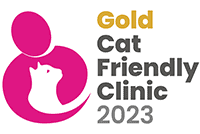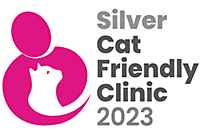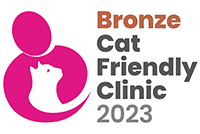Could you please introduce yourself and tell us a little about your career to date?
I qualified from the University of Cambridge in 2012 and joined a practice in Croyden where I spent 14 months on a very exciting but extremely steep learning curve. I’d done lots of work experience with Village Vet so I was always on the lookout for roles within the group. I joined the Winchmore Hill team in 2013 where I spent nearly three years doing everything from emergency work, hospital patient care, consultations and surgery in a wonderful, supportive environment. I then became Head Vet of Village Vet St John’s Wood on March 2016 and am now Clinical Director of this branch and five other practices in the local area. My motivation every day is to create happy teams at work who provide incredible service to our patients and owners alike. It is a profession full of challenge, emotion and reward and I love it.
Tell us about your own pet
I own a 5-year-old ‘working’ basset hound called Wilma who comes to work with me every day.
Having my own dog has made me so much more aware of the strength of the human-animal bond and how important animals are for our world. They are always in the moment and can teach us so much about what it’s all really about! She is loved so much and many of the SJW clients come and visit her when they pop in.
What challenges you the most about being a vet?
No day is ever the same. Sometimes it can be a challenging case that you are working through the steps to diagnose (a bit like being Sherlock Holmes!) or a high-pressure surgery. More often now the challenges are non – clinical; supporting the teams of vets, nurses, patient care assistants and receptionists to excel and enjoy their work, and therefore allowing them to provide that great client experience that characterises Village Vet.
Personally, there are also challenges in a smaller practice where you know clients very well – this is great in most ways as you really get to see that pet through their whole life but often means things can be emotional for me when that pet is unwell and the owner is upset. Vets are generally highly empathetic which can be a blessing and a curse!

Why did you choose Village Vet?
I knew from my time doing work experience at the Maida Vale Brach that Village always wants to do the right thing. Staff at Village Vet want to find out the answer and fix the problem. We want to look after the pets like they are our own and therefore we employ the best staff and have the best facilities and training to allow us to do this. I am always proud of how we work and constantly in aw of the staff I work with when I see the care they have for each individual pet. There are certain gold- standard measures that I love at SJW: IV fluids for every anaesthetic to make sure they stay hydrated and to control the patient’s blood pressure, health plans that allow comprehensive UK parasite control, access to advanced learning resources for vets where we can consult specialists about tricky cases and dental X-rays for all cats to make sure we never miss lesions in the tooth roots. All of these elements allow vets to work safely and in a supported way and mean we are being as careful as we possibly can be with the pets entrusted to us.
At your practice, what are some of the most common preventable ailments that you come across and can you provide us with 3 top tips in relation to them for pet parents?
Parasites! Parasite control from Village Vet includes tick cover for dogs which is vitally important as lyme disease cases (spread by ticks) start to pop up in the UK. Parasite control is included on our Pet Health for Life which gives huge discounts when compared to in clinic cost and means that these pets remain protected. My dog Wilma loves her monthly tablets (as they are disguised as meaty treats!)
Diseases we can vaccinate for. We can vaccinate for a host of diseases in dogs and cats. When we do this we are not only vaccinating the individual but when high percentages of the population are vaccinated, we greatly reduce the prevalence of these diseases as a whole. Parvovirus in dogs still has extremely high fatality rates in young, unvaccinated puppies and being able to vaccinate for it is hugely comforting
Travel-related infections. Pets are travelling more and more – it’s amazing to be able to take your dog, cat or ferret with you on holiday! However, this does come with some risk. There are lots of diseases not seen in the UK that we need to be aware of such as Leishmaniasis or Ehrlichia. Please ask your vet for guidance and prevention techniques well before travel.
What advice would you give to future veterinarians who are thinking about a career in veterinary medicine?
Be prepared to work harder, care more and worry even more than you thought was possible. But in return, you will have a role (as a vet, nurse or support staff in the profession) where you are never bored and that matters to the wellbeing of pets and people every day. Vets always have great stories to tell.











